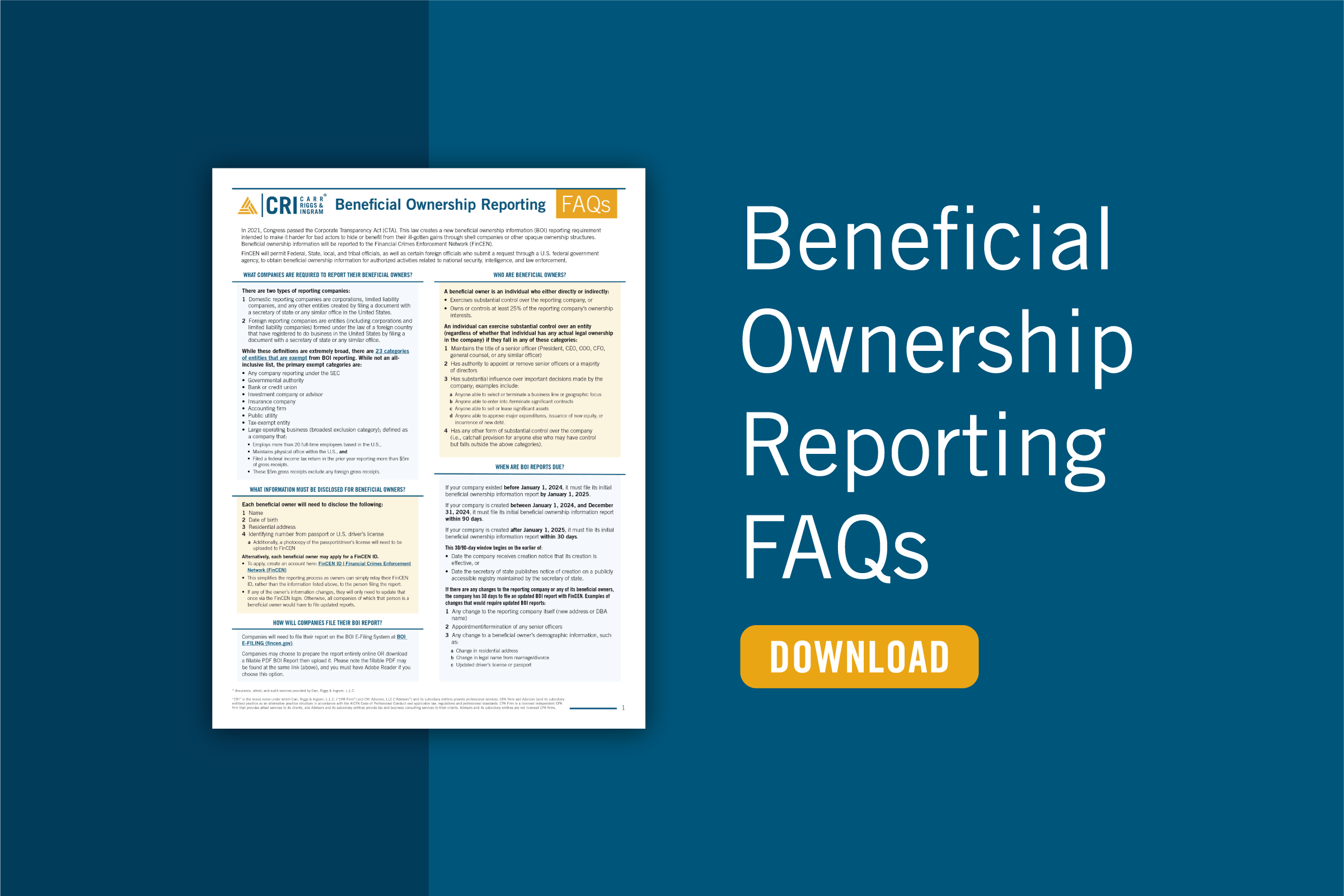Maximizing Estate and Gift Tax Strategies
- Contributors
- April Hicks
- Scott Pohar
Jul 8, 2024
Since the implementation of the Tax Cuts and Jobs Act (TCJA), many taxpayers have taken advantage of the increased lifetime estate and gift tax exemption. However, this has led to many individuals exhausting their applicable exemptions. With less than two years remaining under the increased exemption limits, many of these taxpayers face important decisions that include how to best maximize lifetime gifting using annual lifetime exemption inflation adjustments.
Understanding the Exemption Increase
The lifetime estate and gift tax exemption increased from $12,920,000 in 2023 to $13,610,000 in 2024. Although this $690,000 increase is substantial, many taxpayers remain eager to gift even more despite their reluctance to pay gift tax. However, paying gift tax offers several advantages, including:
- Removing future appreciation from the taxable estate
- Reducing the taxable estate by the amount of the gift tax paid
- Providing an income tax benefit to the recipients of the gifts
How Gift and Estate Taxes Work Together
In 2024, each donor has a $13,610,000 lifetime exemption for estate and gift taxes, allowing them to transfer assets to family members and friends without incurring estate or gift taxes up to this amount. However, lifetime taxable gifts are included in the estate tax base, raising the question: why make lifetime gifts if their value is still subject to estate tax?
The primary advantage lies in locking in the current value of the gifted assets, ensuring that any future appreciation is excluded from taxation. This strategic fixation of value allows the growth of the gifted assets to occur outside the taxable estate, potentially saving significant tax dollars.
For example, consider a donor who gifts securities worth $500,000. By the time of their death, the securities have appreciated to $1.5 million. The $1 million appreciation is removed from the estate tax base, resulting in substantial tax savings. If gift tax was paid on the initial $500,000 (amounting to $200,000), the total tax savings compared to including the securities in the estate (which would incur a $600,000 tax) is significant.
Gift Tax vs. Estate Tax
The gift tax is tax-exclusive, meaning the donor pays the tax, leaving the donee’s gift untaxed. Conversely, the estate tax is tax-inclusive, with the beneficiaries bearing the tax. Paying gift tax can increase the donee’s basis, reducing future income tax liabilities. For instance, if a donor transfers securities with a $1 million FMV and a $550,000 basis, paying a $400,000 gift tax adjusts the donee’s basis to $730,000, saving $54,000 in future income tax at a 30% rate.
An important consideration, however, is that if a donor dies within three years of paying gift tax, the gift tax paid is included in their taxable estate.
Critical strategies include maximizing present interest gifts, utilizing annual exclusions, and adjusting for inflation. Additionally, considering the payment of gift tax on lifetime transfers can be advantageous. By understanding and leveraging these estate planning tools, taxpayers can efficiently manage their estate and gift taxes, ensuring maximum benefit for their beneficiaries.
To explore how these strategies can be tailored to your specific situation, contact your CRI advisor today for expert guidance and personalized advice. Let us help you create a comprehensive plan that aligns with your financial goals and protects your legacy.










































































































































































































































































































































































































































































